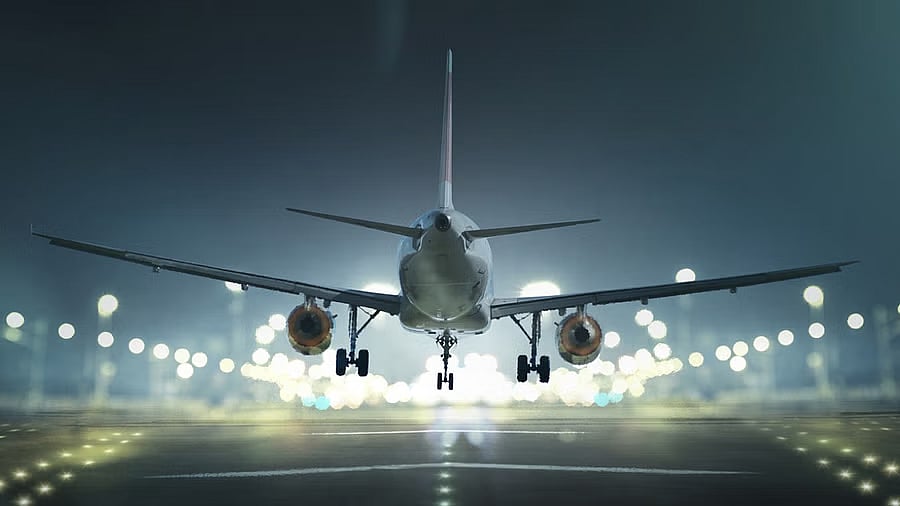
Representative image of flight.
Credit: iStock Photo
Pakistan on Thursday put the Simla Agreement and other bilateral accords with India on hold, suspended all trade, closed its airspace for Indian airlines and said any attempt to divert the water meant for it under the Indus Water Treaty will be considered an Act of War.
According to the senior airline officials, Pakistan airspace is a crucial airspace in the region and is vastly used by the Indian airlines.
Earlier also, Pakistan had barred Indian airlines from using its airspace.
In February 2019, the Indian Air Force conducted air strikes in Balakot, Pakistan after the Pulwama terror attack. Following the air strikes, Pakistan had closed its airspace for Indian airlines for a few months.
As per a report in The Indian Express, the last time the neighbouring country had closed its airspace, the Indian airlines lost around Rs 700 crore due to the increased fuel expenses, and complications concerning operations.
Since Air India operated the most number of west-bound international flights, it was the worst affected. Infact, Air India flights from Delhi to Chicago had to stop in Europe, and the Delhi to Istanbul flight had to hault at Doha, for refuelling.
What does Pakistan's closing of airspace for Indian airlines mean this time?
International flights, especially from Delhi and other northern cities, will take a longer time to reach their destinations, and fares are also likely to rise in the range of 8-12 per cent in the near term, with Pakistan closing its airspace for Indian airlines.
Longer routes: In a post on X, Air India said that due to the announced restriction of Pakistan airspace for all Indian airlines, it is expected that some Air India flights to or from North America, UK, Europe, and Middle East will take an alternative extended route.
Longer duration: Opting for an extended route will result in higher number of hours in air. A senior pilot told PTI that the duration of some of the US and European flights operated by Indian airlines will increase in the range of 2 to 2.5 hours. International flights from cities like Delhi, Amritsar, Jaipur, Lucknow and Varanasi will be directly impacted as they will now have to take a longer route, they added.
Higher operational costs: Aircraft taking longer routes mean they will be burning more fuel, resulting in increased operational costs for the airlines. Since the flight time will be longer than it is now, airlines will be keeping more fuel. Such a situation will pose payload issues for the airlines and they will be forced to reduce the overall weight of the aircraft. For example, lower payload can be achieved by reducing the number of passengers and baggage. Lesser number of passengers in an aircraft means lower revenues, presenting financial challenges for the airlines.
Expensive air tickets: Increased operational costs with payload restrictions is not a financially viable proposition for airlines, which already operate on wafer thin margins. As airlines will not be able to have higher load factors or more passengers in an aircraft operating international flights due to the external constraints, airfare are likely to sail northwards.
(With Reuters, PTI inputs)
